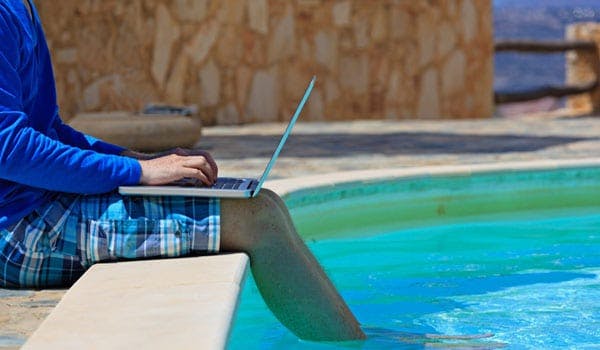Looking to sneak in an hour of work here and there on your summer holiday? You’re not alone – 44 per cent of Aussie professionals plan to work one to three hours a day during their summer holidays, according to a new survey.
The survey from Regus found that another 14 per cent will be spending more than three hours a day on work, while 40 per cent will be working just below a ‘business as usual’ level, dealing with emails, making calls, and attending to significant pieces of work.
Paul Migliorini, CEO of Regus Australia and New Zealand, said that while the dedication Australians are showing towards their work is commendable, it can also point to underlying problems.
“[It] can also be interpreted as a sign that they are unable to properly switch off, perhaps due to feeling overstretched or even insecure in their jobs. The effects of workplace stress are well known, so it’s important that workers set aside some personal time to relax, or they could be close to burn-out,” Migliorini said.
According to the survey, men have more difficulty switching off on holiday than women, with 46 per cent of men stating they will be working 1-3 hours a day compared to 38 per cent of women. Another 33 per cent of women stated they’ll be working to a slightly reduced ‘business as usual’ level, compared to 44 per cent of men.
Aussies are also working harder than professionals overseas: 39 per cent of professionals worldwide said they will take a reduced ‘business as usual’ approach to their holiday, while 41 per cent said they will dedicate one to three hours a day to work.
Fitting in some work during the holidays certainly isn’t a new phenomenon, but as the rise and rise of technology has made it easier than ever for professionals to stay connected, it’s also become harder for them to switch off.
Migliorini said, “On the one hand, technology like cloud services and video communication has certainly made working remotely a reality, on the other, this innovation should be guided towards helping professionals work more flexibly and productively, but without taking over their lives.”

